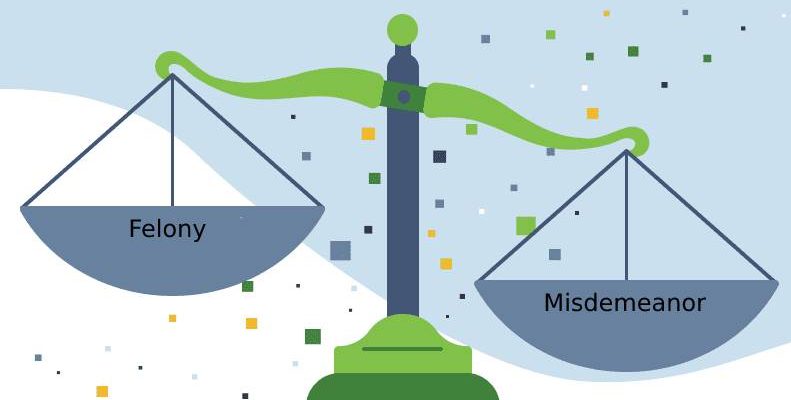
In a world where there’s a rising demand for legal knowledge, it’s better to be aware of what’s happening around you, about your basic rights, and a certain amount of knowledge about things like a felony and misdemeanors. Most people talk about these things once they are in the middle of some legal soup!
For instance, if you are based out in Marietta, Georgia, you can always check out the best felony lawyer in Marietta, GA, or even look for felony attorneys in Marietta to help you out. But why wait till then when you can become more aware as a person just by staying updated and keeping up with things.
What’s The Difference Between A Felony And A Misdemeanor?
So for a change, we will talk about the basic difference between committing a felony and committing a misdemeanor – scroll down to find out all that you need to know about the same.
All About Committing A Misdemeanor: What Is Misdemeanor?
Under the federal law of the United States as well as most state laws in the US, a misdemeanor is defined as a kind of criminal offense which carries a sort of potential jail time that is usually less than one year. There are several states who on the other hand usually define the same as a type of crime that is neither an infraction nor a felony.
Moreover, misdemeanors are usually sorted into different types of classes under the policies of the federal sentencing guidelines, based on the maximum imprisonment time, for the concerning offense. These classes are as follows,
- Class A misdemeanor: This one usually extends to more than a time period of six months, but on the other hand is less than one whole year.
- Class B misdemeanor: This one usually extends to more than a time period of 30 days, but it’s usually six months or lesser.
- Class C misdemeanor: This one usually extends to more than a time period of five days, but on the other hand it can extend to 30 days or less.
Typically, in cases of misdemeanor, the accused are required to serve their jail time inside a local county jail, instead of some high-security prison. Prosecutors usually have a lot of power in terms of which crimes to charge for, the forms of punishment, and the type of plea involved behind the same.
All About Committing A Felony: What Is Felony?
Of course, a felony is far more serious than committing a misdemeanor. In fact, a felony is one of those terms, whose meaning can vary across the several different states of the United States. However, the federal government’s definition of felony extends to all crimes which have a punishment period over an entire year.
But then again, there are states who are not so strict about their definition of a felony. New Jersey and Maine are states who don’t even classify their offense. While there are states who classify their definition, several states don’t even define the term, ‘felony.’ Felony is usually classified into five different categories,
- Class A felony: Death penalty or life imprisonment.
- Class B felony: A minimum of twenty-five years in imprisonment.
- Class C felony: More than ten years and less than twenty-five years in imprisonment.
- Class D felony: More than five years and less than ten years in imprisonment.
- Class E felony: More than one year and less than five years.
The punishments for committing a felony are far more severe than any other form of crime, as a result, the involved criminal procedures are far more strictly observed compared to other forms of crime. Felonies are usually serious crimes and are inclusive of burglary, murder, rape, arson, or even kidnapping.
And It’s A Wrap!
Now that you have a fair idea about the difference between a felony and a misdemeanor, you can be at least aware of your rights about the same. You can also consult with a lawyer based on your requirements. For instance, if you are located in Marietta in Georgia, you can always contact the best felony lawyer in Marietta Ga! In the meantime, don’t forget to let us know your thoughts on the same in the comments below.
Read More:
5 Ways Criminal Record Impacts Your Life
















